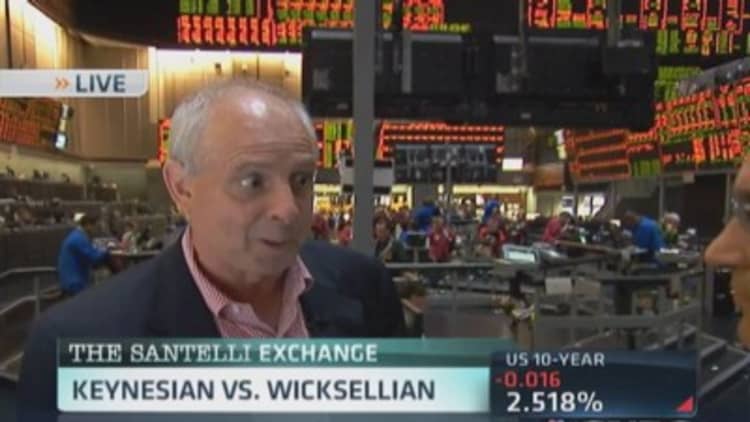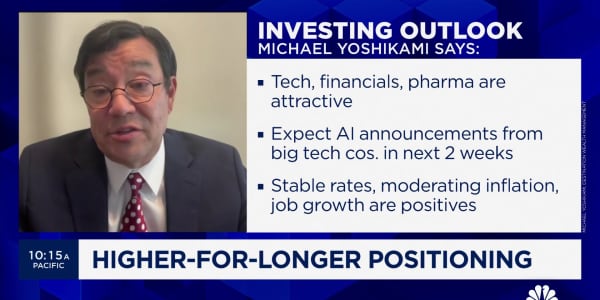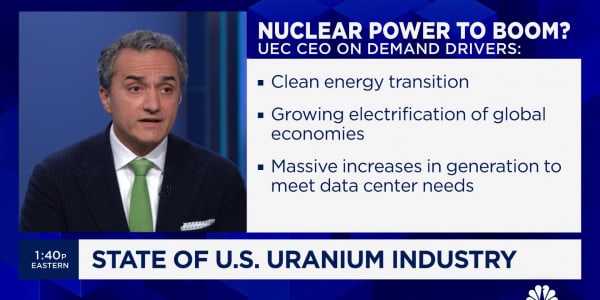If recent speeches from prominent Federal Reserve officials are any indication, the U.S. central bank is feeling pretty emboldened.
Just as the Fed is getting ready to exit its controversial quantitative easing program, there's talk that it wants to expand its mandate to yet a third prong, which would see it assume responsibility for financial stability in addition to price stability and full employment.
New Fed Vice Chairman Stanley Fischer was explicit about the desire in remarks he gave last week, and Fed Chair Janet Yellen has commented about the need for "macroprudential policies" aimed at preventing instability caused by asset bubbles.
"It may well be that adding a financial stability mandate to the overall mandates of all financial regulatory bodies, and perhaps other changes that would give more authority to a reformed (Financial Stability Oversight Council), would contribute to increasing financial and economic stability," Fischer told the influential National Bureau of Economic Research during a presentation in Cambridge, Massachusetts.

Read MoreWhy traders are wrong about the Fed: Insana
Achieving a third mandate, though, wouldn't be up to Fischer, Yellen or the rest of the Fed Open Market Committee.
Instead, that would have to be granted by Congress, which oversees the Fed as a quasi-governmental entity. Such a move would likely face some pretty stiff opposition.
Republican senators Bob Corker of Tennessee and David Vitter of Louisiana last year introduced the Fed Single Mandate Act aimed at directing the central bank to focus solely in fighting inflation. Prominent economists including John Taylor have advocated for a single mandate. And there likely would be internal opposition as well; during a speech back in November, FOMC member Charles Plosser also pushed for a single price stability mandate.
Fed critics argue that the central bank has had little success in the past preventing market bubbles and likely would be just as ineffective in the future, regardless of an official mandate.
"Once again, (this is) hubris from the Federal Reserve that they can control markets and they can decide what is 'financial stability,'" said economist and Fed critic Michael Pento. "If they want real financial stability they should try to engender or at least promote market forces as much as possible."
Read MoreCould inflation be the new subprime?
The Fed has slashed its monthly bond buying from $85 billion to $35 billion a month, but the combined effects of three rounds of QE have pushed the bank's balance sheet past $4.4 trillion. It also has held short-term interest rates near zero for close to six years.
In an interview that hit Monday with the New Yorker magazine, Yellen confessed that the central bank missed the signs of the financial crisis, yet assured that a devotion to proper "macroprudential" policies would give the Fed better ability to mitigate damage from financial excess. The stock market has gained nearly 200 percent since the Fed began implementing QE, but the broader economic recovery has been spotty.
Read MoreSo why did Yellen give that magazine interview?
Banking analyst Dick Bove at Rafferty Capital Markets expressed skepticism that the Fed could properly engineer the economy away from bubbles.
"The whole financial system and economy of the United States is now a laboratory experiment as macroprudential policies are put in place by those very people who failed to understand or correct the excesses that developed in the last financial crisis," Bove said in a note to clients. "More problematic is the fact that macroprudential policy requires regulators to control the growth and direction of the U.S. economy. It denies the right of the private sector to grow in any direction it chooses without the explicit control of the government. It is anti-capitalistic."






